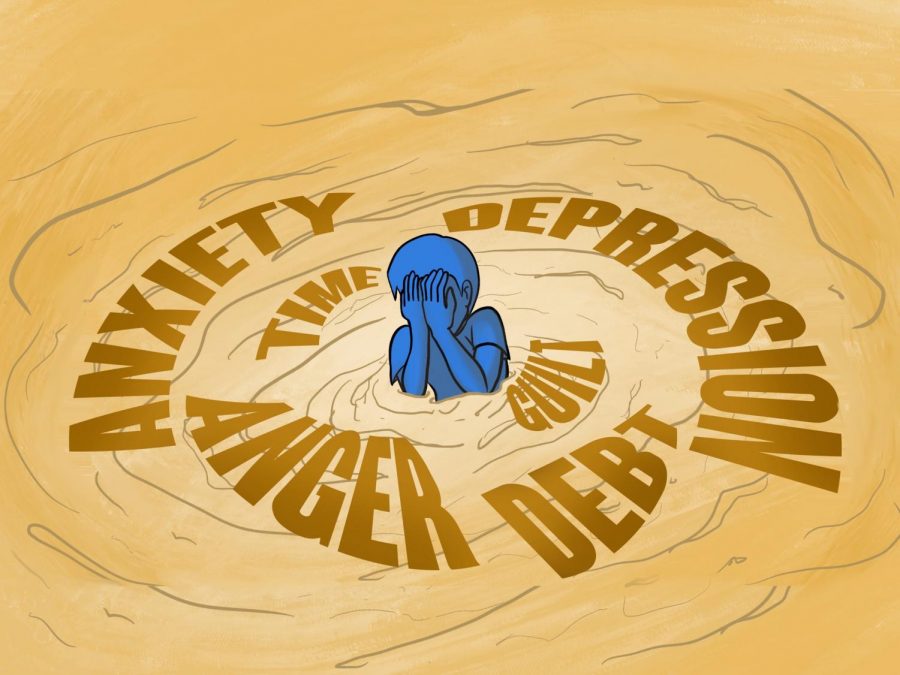New Mental Health Law gives specific guidelines for Illinois’ college counseling services
October 9, 2019
The College of DuPage’s Counseling, Transfer and Advising Services will be making improvements to its support for students with mental health concerns in accordance with a new Illinois law. The legislation helps address the increase in the number of COD students seeking help at a time when the college has only two designated mental health counselors.
The “Mental Health Early Action on Campus Act” or HB2152, which passed on Aug. 9, effective in July of 2020, addresses the various aspects of mental health awareness and suicide prevention in the college setting.
According to the bill, “this act is intended to address gaps in mental health services on college campuses across Illinois, including both 2-year and 4-year institutions, through training, peer support, and community-campus partnership.”
HB2152 instructs college board of trustee members to create a panel of experts to implement policies to advise students, promote awareness and training for staff members. It also mandates a peer support program, which uses peers as a means of support for those living with mental health conditions. According to the bill one of its purposes is to “empower students through peer-to-peer support and training to identify mental health needs and resources.” Those in peer support groups are screened with specific criteria, such as leadership ability and being a positive role model.
State Sen. Laura Ellman of Naperville, who sponsored the bill, cited her own experience to the importance of the bill.
“Young people fresh out of high school, in a new environment, with new academic stresses, away from their previous support systems, might not recognize when they need help,” she said. “When I was 17, a freshman in college, I had a pretty severe eating disorder. There were no resources, no messages, nothing on campus that could turn me toward recognizing the problem and seeking treatment,” Ellman said. “College is a place to learn and explore and prepare for the future; mental health problems needn’t get in the way.”
The bill also states that there should be a ratio of one “clinical non-student staff member” to 1,250 students. Nathania Montes, the current Interim Dean of Student Development and Associate Dean of Counseling, Transfering, and Advising services, explained this part of the bill.
“It’s not necessarily [COD] providing that clinical person as much as it’s a combination of what we can handle on campus and then all of our partnerships with different community agencies as well,” Montes said.
COD currently has two mental health Counselors, as well as counselors that are not designated for mental health, but are licenced clinical professional counselors. Since the demand for counseling has increased, all counselors at COD provide personal counseling.
In terms of referrals and outreach, one of them is the College of DuPage’s contract with Northwestern Medicine’s student assistance program. Since a spike in those seeking personal counseling in 2017, a screening process has been implemented in order to determine if the student is able to be seen at COD, or would be better fit to see someone outside of counseling services.
“They have always been a referral resource for us,” Montes said. “The referral is of no charge to the student, and they do the assessment and follow up with the student,” Montes said.
COD’s Counseling and Advising has put an emphasis on outside resources for those in crisis, and identify what it means to need immediate help and what to do if a counselor is not available at the time.
“Because our counseling center is not set up like an urgent care, we’re not 24/7, it’s really [about] helping to connect students to outside resources that are available on demand and 24/7,” Montes said. “One of the things that we’re hoping to do is to be able to develop a resource card, or a more extensive website that helps show that. One resource I think a lot of people don’t know about is the DuPage County Crisis line which is a 24-hour line. Part of it is how do we help students to know, what do I do? Here are places that you can call, and you always have someone to talk to.”
At this point, COD provides personal counseling, referred to as short-term counseling. Since a spike in those seeking personal counseling in 2017, counselor Dennis Emano and other counselors implemented a screening process in order to determine if the student is able to be seen at COD, or would be better fit to see someone outside of counseling services.
“We can only address presenting problems that can be accomplished between four to six sessions,” Emano said. “So there’s a problem. The history of trauma and abuse from childhood, that’s not appropriate for us. We can’t address that in four or five sessions. In that case, we would be referring that person out, maybe using their health insurance to see them for more than six sessions.”
College of DuPage will host a Mental Health Resource Fair on Oct. 16, including tables from agencies throughout DuPage County, depression screenings as well as a mental health panel. State Rep. Deborah Conroy of Villa Park will be on the panel and will speak about the bill.
Emano, who helps to coordinate this event, noted the importance of the panel.
“The mental health panel is sort of a highlight for that day, because it’s an opportunity for us to have a conversation about this law, understand what this law means and requires and how it affects us as a community at COD,” Emano said.
Montes believes this bill is a step in the right direction to reduce the stigma around mental health issues.
“The nice thing about this bill is it really kind of forces all institutions to look at: what is it that you have, how are you meeting this need, and it also provides the opportunity for what are some more things we can be doing,’ Montes said. “I think that the fact that it is aiming to bring a level of awareness about mental health issues and the importance of resources, I think is wonderful. Because I do think, unfortunately, there is still a lot of stigma. There’s still a lack of understanding on what a mental health issue really is. I look at mental health as being on a continuum. We all have mental health, and we all can struggle with mental health issues in our lives. I do think the bill brings it to the forefront and enforces responsibility in many ways to make sure students have resources that they need.”




















